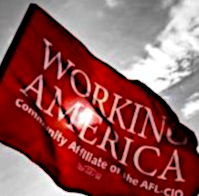President Joe Biden signed an executive creating a task force that would aim to make it easier for workers to unionize.
The team will examine existing policies and issue a series of recommendations within 180 days on how they can be leveraged to “promote worker organizing and collective bargaining in the federal government.” Biden will also direct the task force to recommend what new policies should be created.
The effort will be led by Vice President Kamala Harris and staffed by more than a dozen Cabinet secretaries, along with various agency heads.
“Since 1935, when the National Labor Relations Act was enacted, the policy of the federal government has been to encourage worker organizing and collective bargaining, not to merely allow or tolerate them,” the administration said in a fact sheet announcing the move. “In the 86 years since the Act was passed, the federal government has never fully implemented this policy.”
“While some administrations have taken selected actions to strengthen workers’ rights, no previous administration has taken a comprehensive approach to determining how the executive branch can advance worker organizing and collective bargaining.”
The task force, first reported by the New York Times, will focus in particular on facilitating collective bargaining by the federal workforce; wielding federal policies to pave the way for other workers to organize; aiding workers in “jurisdictions with restrictive labor laws,” along with “marginalized workers” like women and people of color; and increasing union membership.
Labor Secretary Marty Walsh will act as vice chair.
The announcement comes as the Protecting the Right to Organize Act, which would make it easier for workers to unionize, is stalled in the Senate. Despite resounding Democratic support — the House has passed the bill twice, and Biden endorsed it on the campaign trail — it has just 47 Senate backers, well short of the 60 it would need to overcome the filibuster.
With union membership sagging — 10.8 percent of workers belonged to a union in 2020, compared to 20.1 percent in 1983 — organized labor is seizing on the legislation as their best chance at a revival. Union officials told Senate Democrats on a private call last week that if lawmakers did not back the bill, then they would not support them financially or otherwise in upcoming elections.
In the meantime, the White House is searching for ways it can pave the way to unionization without needing to rely on Congress. Already, Biden has jumped at the chance to overhaul the National Labor Relations Board, which oversees implementation of the NLRA. He’ll be able to take it a step further in August, when one of the agency’s Republican members’ term expires and he can appoint a Democratic majority.
by Eleanor Mueller, Politico



















